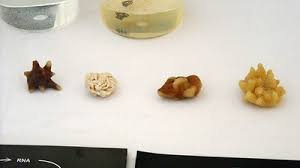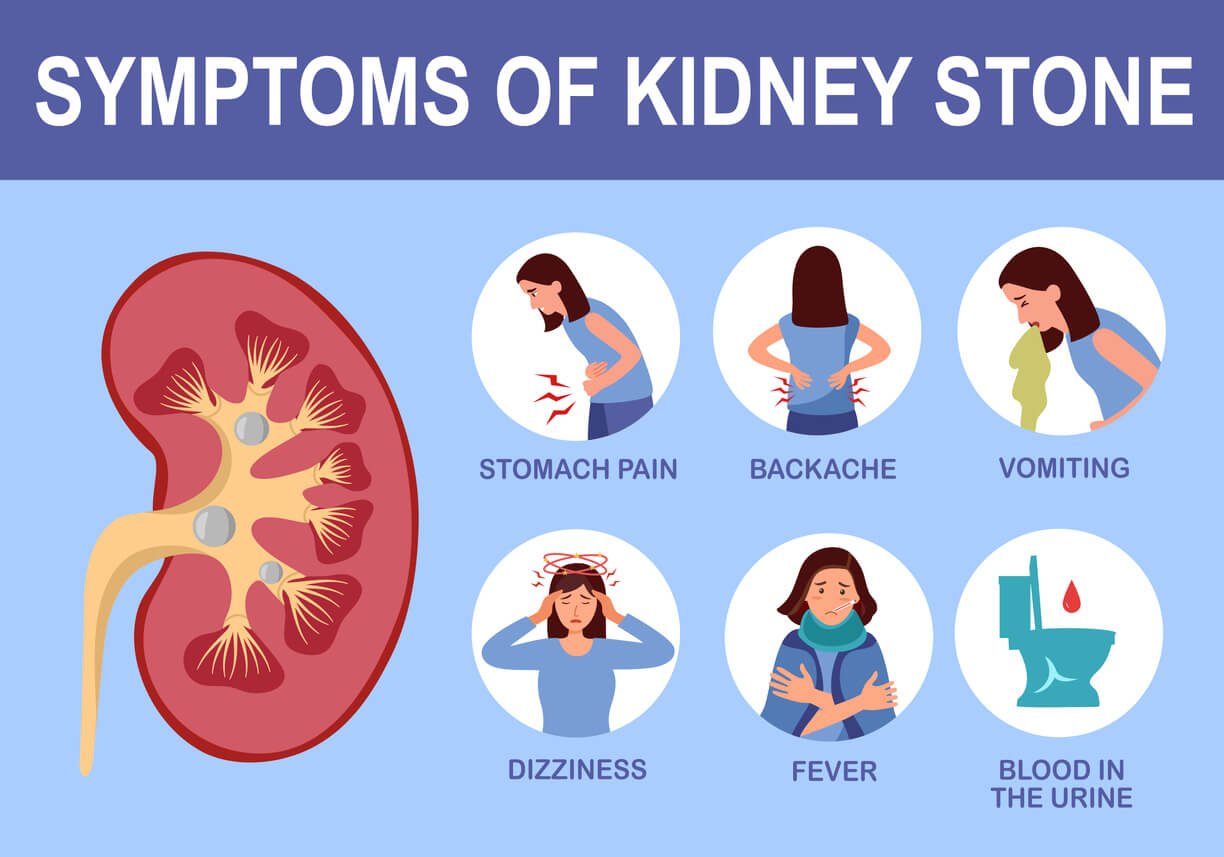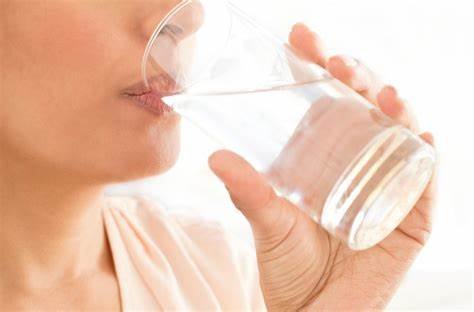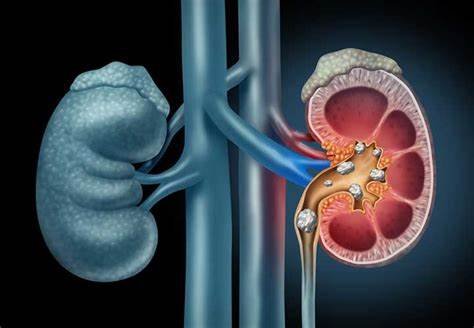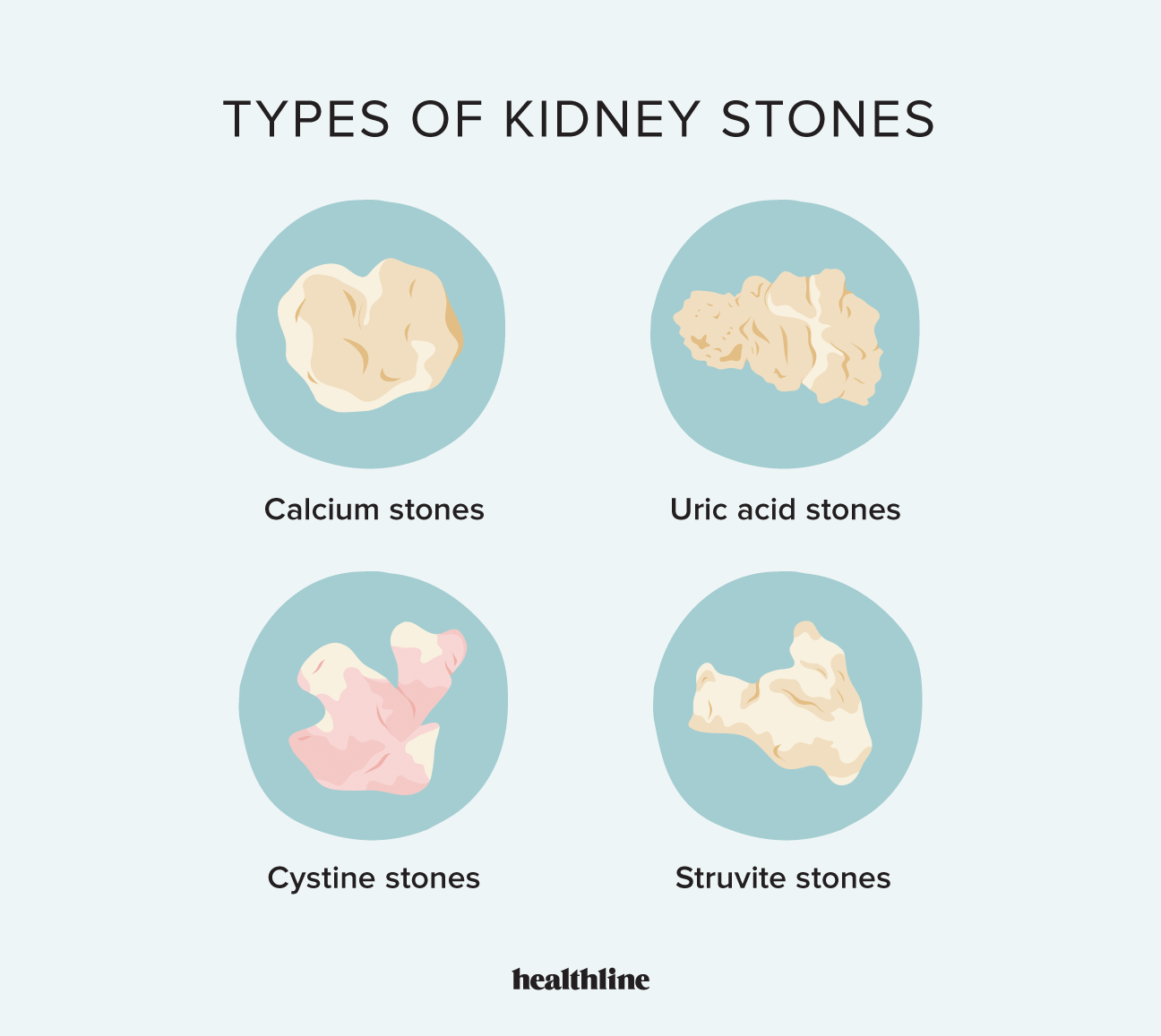Kidney stones are hard, mineral-based deposits that form inside the kidneys and can cause severe pain and discomfort when passed through the urinary tract. They vary in size, shape, and composition, which is why it’s essential to understand the different types of kidney stones. Knowing which type you have can help guide treatment and prevention strategies. In this article, we’ll explore the various types of kidney stones, their causes, and how to manage or prevent them.
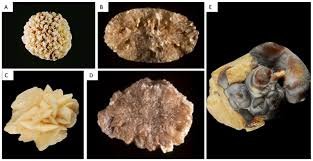
1. Calcium Oxalate Stones
Calcium oxalate stones are the most common type of kidney stones, accounting for about 80% of all cases. These stones form when calcium combines with oxalate, a substance found in foods like spinach, nuts, and chocolate. While calcium is essential for bone health, excessive amounts of calcium in the urine, combined with high levels of oxalate, can lead to the formation of stones.
Causes: High dietary oxalate intake, dehydration, and high calcium levels in the urine (hypercalciuria) can contribute to the formation of calcium oxalate stones. Certain conditions, like hyperparathyroidism (overproduction of parathyroid hormone), can also lead to excess calcium in the bloodstream and urine.
Prevention and Management: To prevent calcium oxalate stones, it’s important to stay hydrated and maintain a balanced diet. Avoiding excessive consumption of high-oxalate foods, such as spinach, beets, and sweet potatoes, can help. Additionally, increasing calcium intake through food rather than supplements can help bind oxalate in the digestive tract, preventing its absorption into the bloodstream.
2. Uric Acid Stones
Uric acid stones form when there’s too much uric acid in the urine. This is a byproduct of purine metabolism, which is found in foods like organ meats, red meat, and shellfish. When the urine becomes too acidic, uric acid can crystallize, forming stones.
Causes: Dehydration is a primary cause of uric acid stones, as concentrated urine promotes the crystallization of uric acid. High-protein diets, obesity, and certain medical conditions like gout or diabetes also increase the risk. People with gout, in particular, have high levels of uric acid in their blood, which can lead to stone formation.
Prevention and Management: To prevent uric acid stones, staying well-hydrated is crucial. Drinking plenty of water helps dilute the urine and prevent crystallization. Reducing the intake of purine-rich foods, such as red meat and seafood, can also be beneficial. In some cases, doctors may recommend medications like allopurinol to lower uric acid levels in the blood and urine.
3. Struvite Stones
Struvite stones, also known as infection stones, are less common but can be particularly troublesome. These stones are usually caused by urinary tract infections (UTIs) with specific bacteria that produce ammonia, which can make the urine more alkaline. This alkalinity promotes the formation of struvite stones, which are made up of magnesium ammonium phosphate.
Causes: Struvite stones form when an infection in the urinary tract causes the urine to become more alkaline. Bacteria such as Proteus and Klebsiella are often responsible for these infections, as they break down urea into ammonia, raising the pH of urine.
Prevention and Management: Preventing struvite stones primarily involves managing and preventing urinary tract infections. People prone to UTIs should practice good hygiene, stay well-hydrated, and consider cranberry products or antibiotics as preventive measures. In some cases, surgical removal of larger struvite stones may be necessary, as they can grow quickly and cause kidney damage.
4. Cystine Stones
Cystine stones are a rare but significant type of kidney stone that form in people with a genetic disorder called cystinuria. This condition causes the amino acid cystine to leak into the urine, where it crystallizes and forms stones. Cystine stones are typically larger and more likely to recur than other types of kidney stones.
Causes: Cystinuria is an inherited condition, and it causes an abnormal amount of cystine to spill into the urine. When cystine concentrations reach a certain level, it can form stones. These stones tend to be more frequent and recurrent, often forming at a younger age.
Prevention and Management: Preventing cystine stones involves increasing fluid intake to dilute the cystine in the urine and reduce the risk of crystallization. Patients with cystinuria may also be prescribed alkaline medications (such as potassium citrate) to help keep the urine less acidic, which can prevent cystine from crystallizing. In some cases, surgical removal or extracorporeal shock wave lithotripsy (ESWL) may be required to break up large stones.
5. Calcium Phosphate Stones
Calcium phosphate stones are less common than calcium oxalate stones but can occur under specific conditions. These stones form when calcium combines with phosphate in the urine, leading to the creation of crystals.
Causes: Conditions that cause high urine pH (alkaline urine) can increase the likelihood of calcium phosphate stones. These conditions include renal tubular acidosis and certain metabolic disorders. In some cases, calcium phosphate stones may be associated with hyperparathyroidism or sarcoidosis.
Prevention and Management: Preventing calcium phosphate stones involves maintaining proper hydration and managing the underlying conditions that cause alkaline urine. Medications that lower urine pH, such as thiazide diuretics or acetazolamide, may be used in some cases to prevent the formation of these stones.
Conclusion
Understanding the different types of kidney stones is crucial for preventing their recurrence and managing them effectively. The most common types—calcium oxalate and uric acid stones—can often be managed through dietary changes, hydration, and in some cases, medication. Struvite and cystine stones, while rarer, require special attention due to their connection with infections or genetic conditions.
By staying well-hydrated, maintaining a balanced diet, and following your doctor’s recommendations for prevention, you can significantly reduce your risk of developing kidney stones. If you’re prone to stones, it’s important to work with your healthcare provider to tailor your treatment plan based on the specific type of stone you have.






